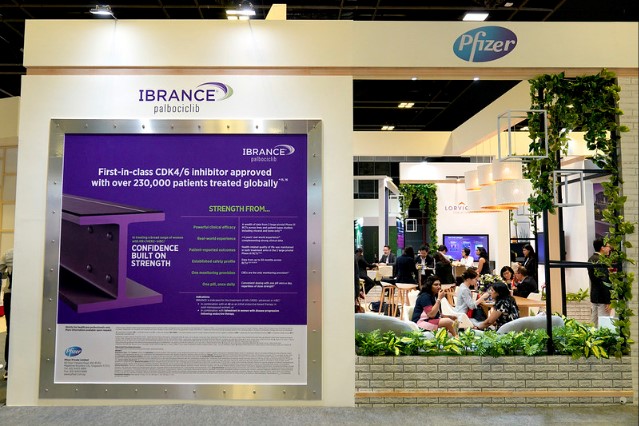SINGAPORE, Dec 3 — Pfizer Inc has announced a competitive research grant programme to fund breast cancer studies in Asia, Africa, the Middle East, and Latin America.
The 2020 Pfizer Oncology Breast Cancer Competitive Research Grant Programme by the US-based pharmaceutical giant intends to fund up to 15 studies, for a total of up to US$3 million, according to its announcement during the recent European Society for Medical Oncology (ESMO) Asia Congress 2019 here.
Submissions are due by April 7, 2020.
The breast cancer research sought were on real-world studies, for example retrospective studies, to understand breast cancer epidemiology, patient population, and treatment landscape including adaptation of international guidelines to local practice, or genetic testing practices (such as BRCA mutation) in a particular country or region.
The research grant programme also wanted studies to understand clinical outcomes in patients with HR+, HER2- metastatic breast cancer of various socio-economic status, for example, patients with no or limited accessibility to medicine and health care services versus those with accessibility).
Also wanted were clinical studies incorporating correlative/ biomarker components using paired biopsy samples, for example, pre- and post-treatment; and/ or at disease progression, ctDNA, to identify potential mechanisms of resistance to palbociclib or talazoparib treatment.
The research grant programme called for research on the evaluation of optimal clinical and/or nursing management approaches during palbociclib treatment that improves patients’ treatment compliance, patients’ convenience, and/or patient-reported outcomes, for example, the use of digital technology such as mobile applications.
Pfizer asked for research on breast cancer-related programmes with clearly defined outcome measures to improve medical knowledge and patient care, including but not limited to community outreach, or a lecture series to health care providers.
Review and selection of research proposals will be performed by an independent, external panel of experts.
This request for proposals (RFP) is not designed to support large randomised interventional studies, with avelumab proposals excluded from the RFP.








